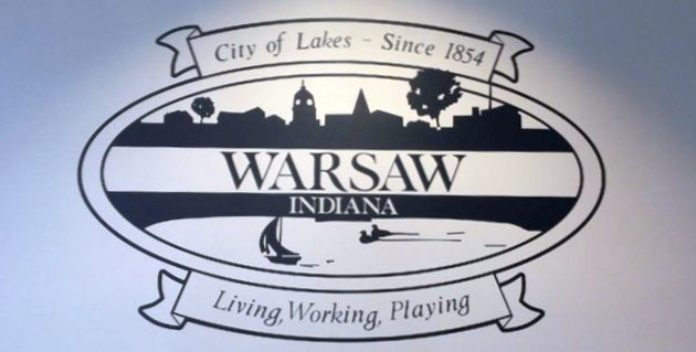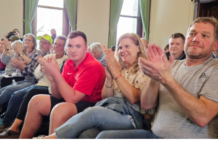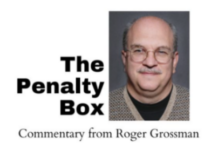Three different proposals with varying degrees of financial impact were presented to Warsaw City Council Monday.
Two small tax levies and a decision on the type of wastewater treatment plant were reviewed and initially approved by council, but final decisions will come when the council meets again March 19.
First, the tax plans.
The city has two small levies – one for cumulative capital development, which is used primarily for storm sewer infrastructure. The other is an equipment replacement fund for the Warsaw-Wayne Fire Territory.
Both levies are normally reduced over time by the state and the council traditionally takes action to reset them back to a higher level.
The cumulative capital fund currently stands at $.0402 per $100 of assessed valuation and the proposal supported by Mayor Joe Thallemer would bring it back up to the maximum $.0500 per $100 of assessed valuation.
Thallemer also supports resetting the fire equipment fund back to the maximum of $.0333. It currently stands at $.0307
Both funds combined are a small part of the city’s $1.26 tax rate, which is a hair smaller than it was a year ago.
Combined, if the two proposals were approved, it would result in roughly another $120,000.
If the CCD rate reset is adopted, the proposal would enter into a remonstrance period, and ultimately would need to be sent to the state by April 30.
Councilman Ron Shoemaker pointed out that the city had just finished work that reduced the city tax rate slightly, and questioned why they were now being asked to consider raising taxes.
Kyle Babcock, a former city councilman, asked why the city appeared to be in a hurry to raise the tax and why it was not part of the budget process.
Thallemer suggested they were following normal procedures. Clerk-Treasurer Lynne Christiansen pointed out that it was being addressed now because the state moved up deadlines from August to April.
Babcock wondered why it was not a topic during last year’s budget talks.
Thallemer countered: “Lynn did bring it up at the budget hearings. It wasn’t part of the budget hearings, (but) she brought it up that it can be re-established.”
Thallemer reminded council that they have the final decision. “This group can turn this down,” he said with a hint of frustration.
By maximizing the CCD fund, Thallemer said the city is able to maintain a low stormwater utility rate and focus the money on more stormwater improvements, “for which there are many.”
Council also reviewed the equipment replacement fund.
Fire Chief Mike Wilson noted that the city will be seeking to replace a ladder truck, which could cost upward of $2 million.
The levy currently has a balance of $2.36 million.
Council approved both levy proposals on a preliminary vote. In both cases, the vote was 6-1 with Shoemaker being the lone dissenter.
Final votes for both proposals are expected at the March 19 meeting.
Council also conducted a public hearing on a preliminary engineering report that laid out options for two types of wastewater treatment plant expansion.
The city treatment plant is near capacity and in 2017 saw its average hit 101 percent of capacity. Part of that was due to increased rains last year, according to Brian Davison, wastewater utility manager.
The city’s treatment plant currently uses an aerobic treatment process, but is looking at using an anaerobic treatment plan when it expands.
The aerobic processes uses bacteria and requires circulating air throughout the treatment tank.
Anaerobic process does not rely on air and instead transforms organic matter in the wastewater into biogas. Construction is more expensive, but relies on less energy to operate.
According to a presentation by Wessler Engineering, the cost to expand and convert to anaerobic would be roughly $33.4 million while expanding the aerobic system would be about $22 million.
“The anaerobic process is better as the plant capacity increases. The bigger the plant gets, the more advantageous it becomes,” said Gary Wessler, of Wessler Engineering.
The city is under pressure to expand the facility and council will consider later this year exactly how to pay for expansion.
Council will vote on March 19 on the engineering report.





